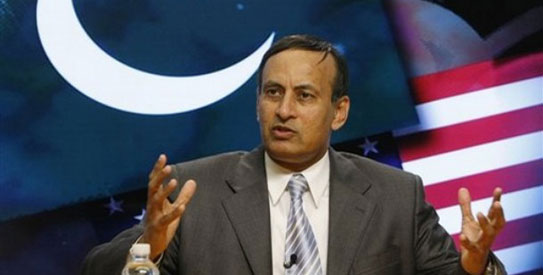
WASHINGTON: The US Senate passed a $662 billion defence bill Thursday that also freezes some Pakistan aid, imposes sanctions on Iran's central bank, and approves the indefinite imprisonment of suspected terrorists.
The Democrat-led Senate voted 86-13 for the Defence Authorisation bill, which was passed Wednesday by the House. President Barack Obama was expected to sign it as early as this weekend after dropping a veto threat.
The measure, which also sets high hurdles for closing Guantanamo Bay, had drawn fire from civil liberties groups that strongly criticised its de facto embrace of holding alleged extremists without charge until the end of the “war on terrorism,” which was declared after the September 11, 2001 attacks.
Obama, who had threatened to veto earlier versions of the yearly measure, will sign it despite lingering misgivings, his spokesman Jay Carney said before the House vote on Wednesday.
The legislation, a compromise blend of rival House and Senate versions, requires that al Qaeda fighters who plot or carry out attacks on US targets be held in military, not civilian, custody, subject to a presidential waiver.
The bill exempts US citizens from that fate, but leaves it to the US Supreme Court or future presidents to decide whether US nationals who sign on with al Qaeda or affiliated groups may be held indefinitely without trial.
The bill also freezes roughly $700 million in aid to Pakistan, pending assurances that Islamabad has taken steps to thwart militants who use improvised explosive devices (IEDs) against US-led forces in Afghanistan.
Earlier Thursday, Pakistan angrily criticized US moves to freeze the aid money —the latest rifts in a fraying alliance that has been in deep crisis since air strikes by US-led forces killed 24 Pakistani soldiers last month.
“We believe that the move in the US Congress is not based on facts and takes a narrow vision of the overall situation; hence, wrong conclusions are unavoidable,” said foreign ministry spokesman Abdul Basit.
The legislation also brings tough new sanctions to Iran, with the aim to cut off Tehran's central bank from the global financial system in a bid to force the Islamic republic to freeze its suspect nuclear program.
The goal is to force financial institutions to choose between doing business with the central bank — Iran's conduit for selling its oil to earn much-needed foreign cash — or doing business with US banks.












































